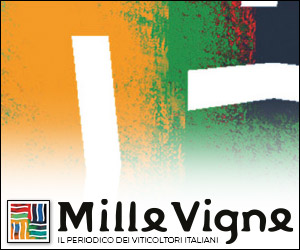Lawyer Filippo Moreschi, UGIVI – Union of Vine and Wine Jurists
The conference organized by UGIVI – Union of Jurists of Vine and Wine, together with the Cantina Sociale di Quistello and Legal Hackers Mantova, with the support of Vinophila as digital media partner, and which was held on May 25th in the historic headquarters wine cooperative of the Oltrepò Mantovano, addressed the topic of sustainable wine tourism.
Starting from the civil and labor regulations that regulate the company’s wine tourism activity, the conference covered topics related to marketing, territorial governance and wine tourism experiences in quality and traditional wine-growing areas, national and international, from Valpolicella to Alsace.
The reflection focused above all on the figure of the wine tourist-consumer or, as has been appropriately pointed out, that tourist tout-court who seeks experience also – but not only – in the cellar and in a glass of wine.
So, who is the wine tourist today? What does he want?
We understood that he is a tourist who tends to be young (and this is very much in contrast with the idea that wine consumption only concerns mature people); that he seeks experience and emotion rather than training, both in the visit, in the dinner among the vineyards or even in the tourist harvest; that he uses digital tools to inform himself and organize his trip but that, to choose his destination, he needs to be struck by short and effective messages; which places the visit to the cellar or the tasting as part of a cultural, sporting, recreational, gastronomic, recreational itinerary, as a stage, not necessarily the main one, of a holiday or more complex leisure; who chooses, if possible, slow or sustainable tourism, especially if the proposals are attractive from an emotional or experiential point of view and allow them to discover the landscape, rural traditions, the territory (historic trains, cycle tourism, outdoor activities ‘open, etc.).
The world of Italian wine tourism is called to respond to a new question, which is no longer limited to the story of how wine is produced or to the evening/tasting/harvest in the individual farm. There is no real wine tourism offer if there are no rural and urban development policies adequate for new tourist flows and based on sustainability, and mobility must be rethought (what role for electric? What role for the so-called “last mile”?) also with a view to avoiding land consumption. Today, offering a wine-only package can be limiting first of all for the wine tourist consumer, a person who must be encouraged to experience multifaceted emotions, which allow him to experience moments of complete and varied well-being.
So, satisfying the needs, requirements and expectations of the new wine tourist becomes a primary interest not only for wine companies, but also for all the players in the area: first of all those in the wine supply chain but also the institutions, transport services, organized tourist travel companies, cultural associations and institutions, catering, tourist and wine tourism guides.
The more these actors are able to move together and form a system, the more the entire territory will be attractive, it will guarantee development to all economic sectors, and it will help wine companies to face the consumption crisis.
At the end of the 16th century, the disintegration of Renaissance values led painting, architecture and the other arts to experiment and question themselves, their function and their ability to represent and communicate truth and nature.
It was the Carraccis in Bologna and Caravaggio who opened a new era by bringing the spectator-believer back to the center of attention, acting on his desire to understand, to understand, to have an immersive and total experience. What for us is Baroque art is for these great artists a return to the ancient, to the truth, to the ability of art to speak to people, bringing the spectator’s point of view, his characters, his needs, his linguistic codes, his expectations.
Similarly to then, the world of wine must perhaps stop looking too much at itself and think about communicating better with the consumer, putting their needs and desires first again, which do not always coincide with those of those who wine does it or promotes it. And wine tourism, experienced, thought about and practiced in this new perspective, can truly become the vehicle of a renewed era of viticulture.



